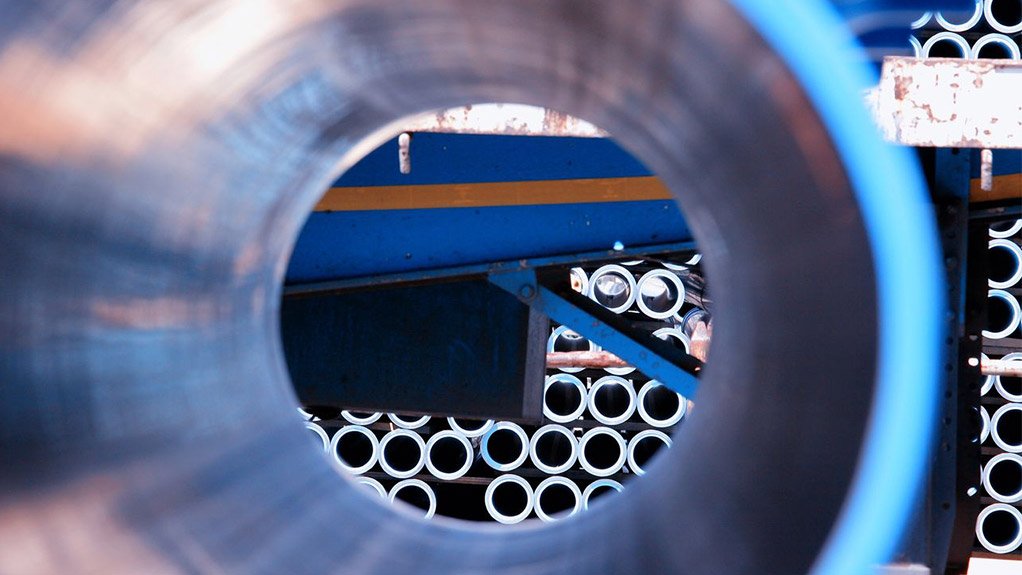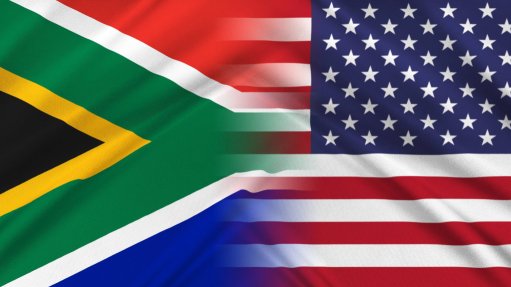Govt’s infrastructure expansion plan for water supply, sanitation delayed – Sappma


SUPPLY CAPACITYThe plastic pipes industry is well developed and capable of handling much higher volumes of work than disclosed by government as it boasts about R3-billion in output sales a year
Government’s delivery of basic water supply and sanitation services to all South Africans by 2014 seems to be delayed, says the South African Plastic Pipes Manufacturers Association (Sappma).
The country’s plastic pipe industry has been preparing and is still waiting for the long-awaited, and promised, government expenditure on infrastructure expansion and renovation, Sappma tells Engineering News.
The Development Bank of Southern Africa’s (DBSA’s) ‘State of South Africa’s Economic Infrastructure: Opportunities and challenges 2012’ report highlights that R62-billion is required to tackle backlogs in reticulation infrastructure, including refurbishment, bulk infrastructure and treatment infrastructure. Internal bulk infrastructure requires the highest percentage of this allocation (36%), followed by reticulation (33%), refurbishment (18%) and wastewater treatment (13%).
The sanitation infrastructure investment required by South Africa is R73-billion, of which wastewater treatment works account for 26% and sanitation 47%. The sanitation refurbishment budget accounts for 11% of the budget and bulk sanitation infrastructure for 16%, the report points out.
“The plastic pipes industry is well developed and capable of handling much higher volumes of work than disclosed by government. This is evident in statistics, which show that the current plastic pipes activity level in South Africa is higher than a year ago, despite fierce competition and low gross margins. In terms of output sales, the industry records about R3-billion a year.
“However, growth has been between 1.5% and 2% of the gross domestic product in the past two years, which is lower compared with growth some years ago,” says Sappma chairperson Jan Venter.
Meanwhile, the DBSA’s report also highlights that several bulk water infrastructure developments are taking place in South Africa, notably the Olifants River Water Resources Development Project, which accounts for 52% of the R9.9-billion allocated to projects currently under way. The total funding required to implement the new mandated projects is estimated at R14.2-billion, of which 32% will be funded by development financial institutions and 18% by commercial banks. According to the budgeted capital expenditure, the bulk of expenditure will take place during the 2014/15 financial year.
Meanwhile, Venter adds that, owing to the plastics piping business being a strategic industry, hardware needs to be reliable for extended periods. Long-term product quality is fundamental and quality plastic pipe should be good for a minimum of 50 years according to industry standards, states Sappma.
Further, he points out that plastic pipe in South Africa is regulated by national standards that are in line with international best practice. This limits deviations and short cuts in terms of pipe design, performance and the mass of material used. The input cost to produce pipe is dominated by that of polymers, which can be more than 75% of the total cost. The international trend is, therefore, to reduce pipe-wall thicknesses by using less material.
“It is our vision to create absolute quality, trust and integrity throughout the value chain of the Southern African plastic pipes industry. To this end, Sappma continues to work closely with the South African Bureau of Standards in a joint effort to weed out inferior quality plastic piping systems.
“As big polymer manufacturers are being governed by these standards, they constantly seek to develop materials with higher design stresses. Production equipment and the outputs and efficiencies of pipe extruders, in particular, are also continuously being improved,” Venter highlights.
He says many local pipe manufacturers have maintained good business relationships with international companies, through which they acquire information to enhance their knowledge of the industry. “This will ensure that, once government is certain about the implementation of the infrastructural expan- sion and renovation plan, companies can offer services that will assist government in meeting the required mandate.”
Government Future Plans
The report also points out that over the country’s current Medium Term Strategic Framework, from 2009 to 2014, role-players in the water sector will continue to focus on meeting targets for the delivery of water supply services to ensure 100% access to water for South Africans. During this period, the management of South Africa’s scarce resources and support for the development of bulk water resources infrastructure for long-term sustainability will continue.
South Africa has about 4 718 dams, which include those owned by the Department of Water Affairs (DWA) and privately owned dams. The DWA owns about 305 dams, with a total capacity of 29.2-billion cubic metres, which account for 70% of the total dam capacity in the country. To reconcile the imbalances of water demand and supply between the water catchment management areas, the DWA has developed transfer schemes that deliver bulk water from areas of surplus to areas of deficit. Therefore, pipelines are an important factor in ensuring that government reaches its mandate, states the report.
“In the KwaZulu-Natal and North West provinces, the need for investment in water reticulation is the most urgent priority, while the need for investment in bulk infrastructure is a priority in the Eastern Cape, Free State, Mpumalanga and Northern Cape provinces. In the Western Cape, bulk infrastructure and refurbishment are priorities,” it explains.
Regional bulk water services infrastructure includes raw water abstraction, treatment works, reservoirs and distribution pipelines to supply water in bulk across municipal borders and over vast distances. The water boards in the different provinces are responsible for the operation of most of this infrastructure. In 2007, the DWA commissioned a Regional Bulk Infrastructure Programme to improve economies of scale and fast- track the delivery of sustainable water services to local communities, especially in rural areas. The programme continues to be financed through the National Treasury’s Regional Bulk Infrastructure Grant, states the report.
Article Enquiry
Email Article
Save Article
Feedback
To advertise email advertising@creamermedia.co.za or click here
Press Office
Announcements
What's On
Subscribe to improve your user experience...
Option 1 (equivalent of R125 a month):
Receive a weekly copy of Creamer Media's Engineering News & Mining Weekly magazine
(print copy for those in South Africa and e-magazine for those outside of South Africa)
Receive daily email newsletters
Access to full search results
Access archive of magazine back copies
Access to Projects in Progress
Access to ONE Research Report of your choice in PDF format
Option 2 (equivalent of R375 a month):
All benefits from Option 1
PLUS
Access to Creamer Media's Research Channel Africa for ALL Research Reports, in PDF format, on various industrial and mining sectors
including Electricity; Water; Energy Transition; Hydrogen; Roads, Rail and Ports; Coal; Gold; Platinum; Battery Metals; etc.
Already a subscriber?
Forgotten your password?
Receive weekly copy of Creamer Media's Engineering News & Mining Weekly magazine (print copy for those in South Africa and e-magazine for those outside of South Africa)
➕
Recieve daily email newsletters
➕
Access to full search results
➕
Access archive of magazine back copies
➕
Access to Projects in Progress
➕
Access to ONE Research Report of your choice in PDF format
RESEARCH CHANNEL AFRICA
R4500 (equivalent of R375 a month)
SUBSCRIBEAll benefits from Option 1
➕
Access to Creamer Media's Research Channel Africa for ALL Research Reports on various industrial and mining sectors, in PDF format, including on:
Electricity
➕
Water
➕
Energy Transition
➕
Hydrogen
➕
Roads, Rail and Ports
➕
Coal
➕
Gold
➕
Platinum
➕
Battery Metals
➕
etc.
Receive all benefits from Option 1 or Option 2 delivered to numerous people at your company
➕
Multiple User names and Passwords for simultaneous log-ins
➕
Intranet integration access to all in your organisation



















